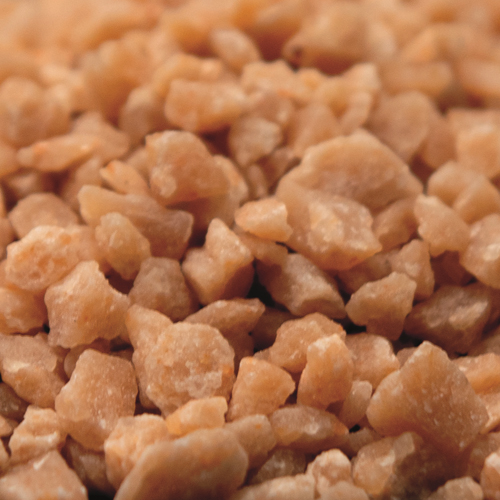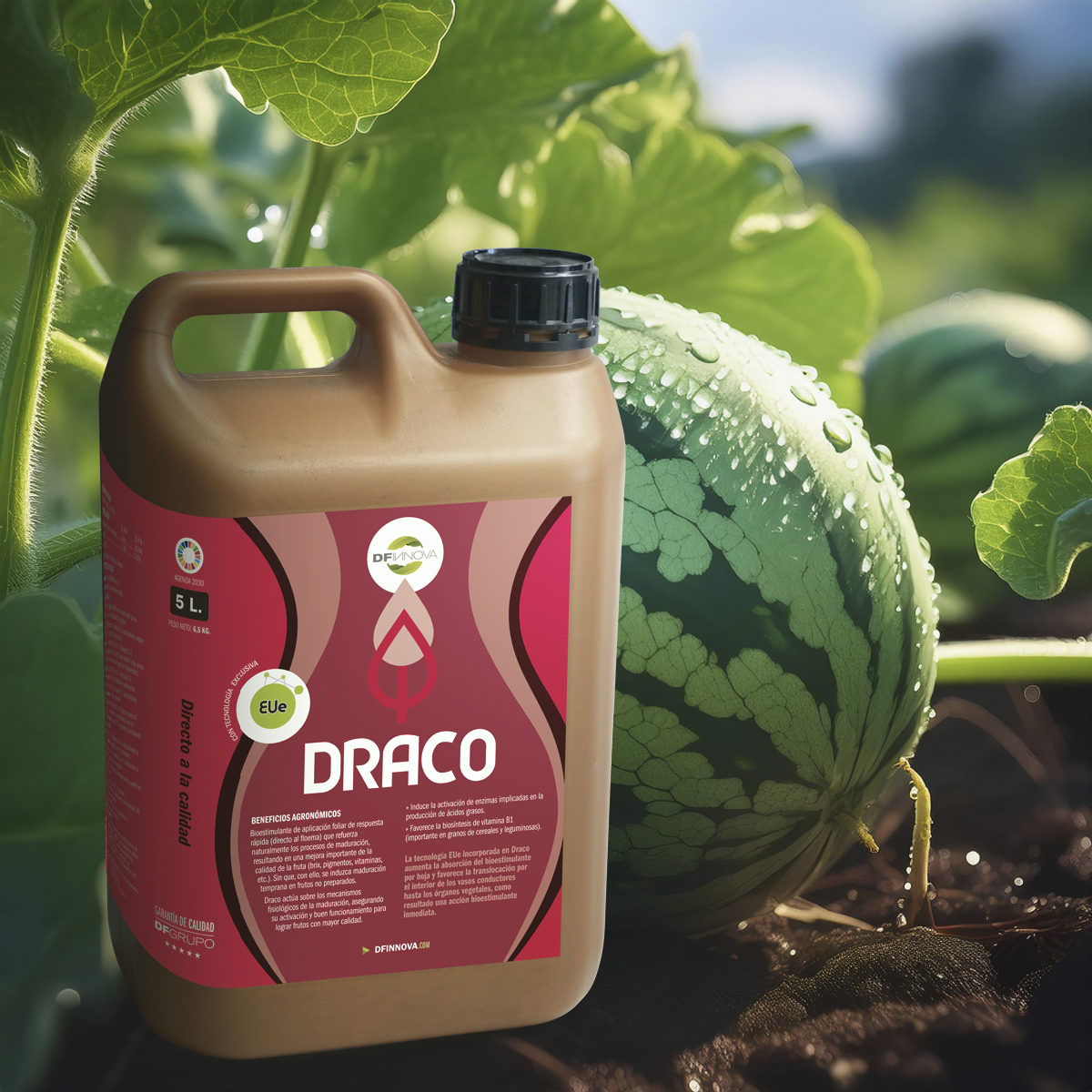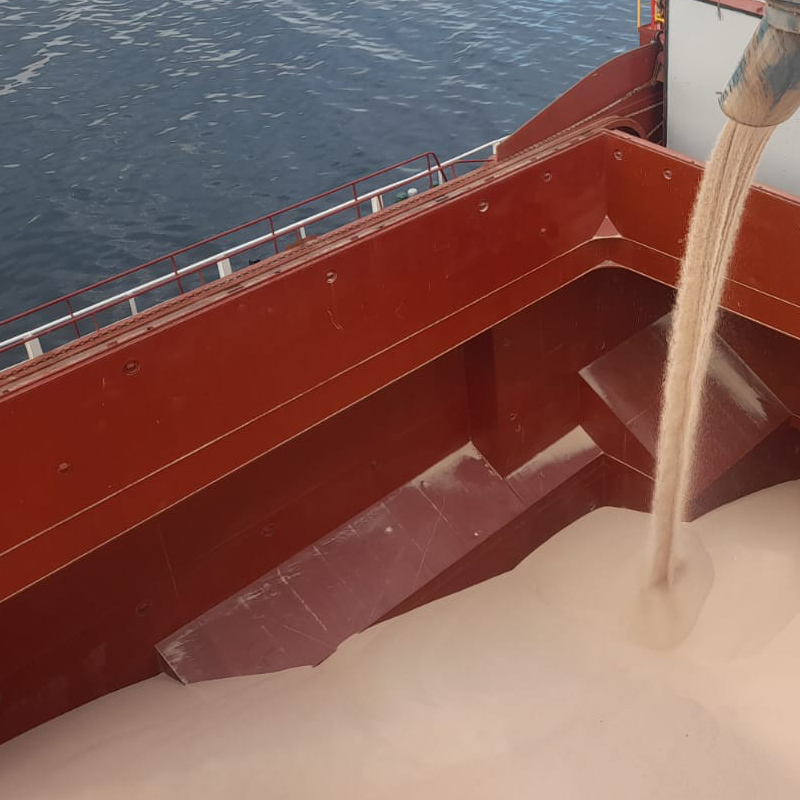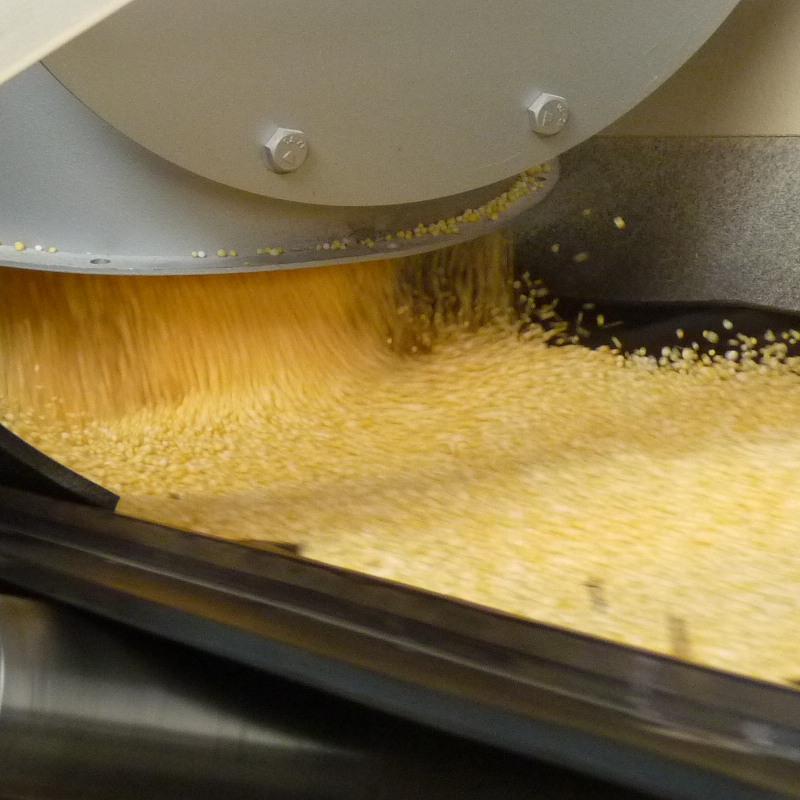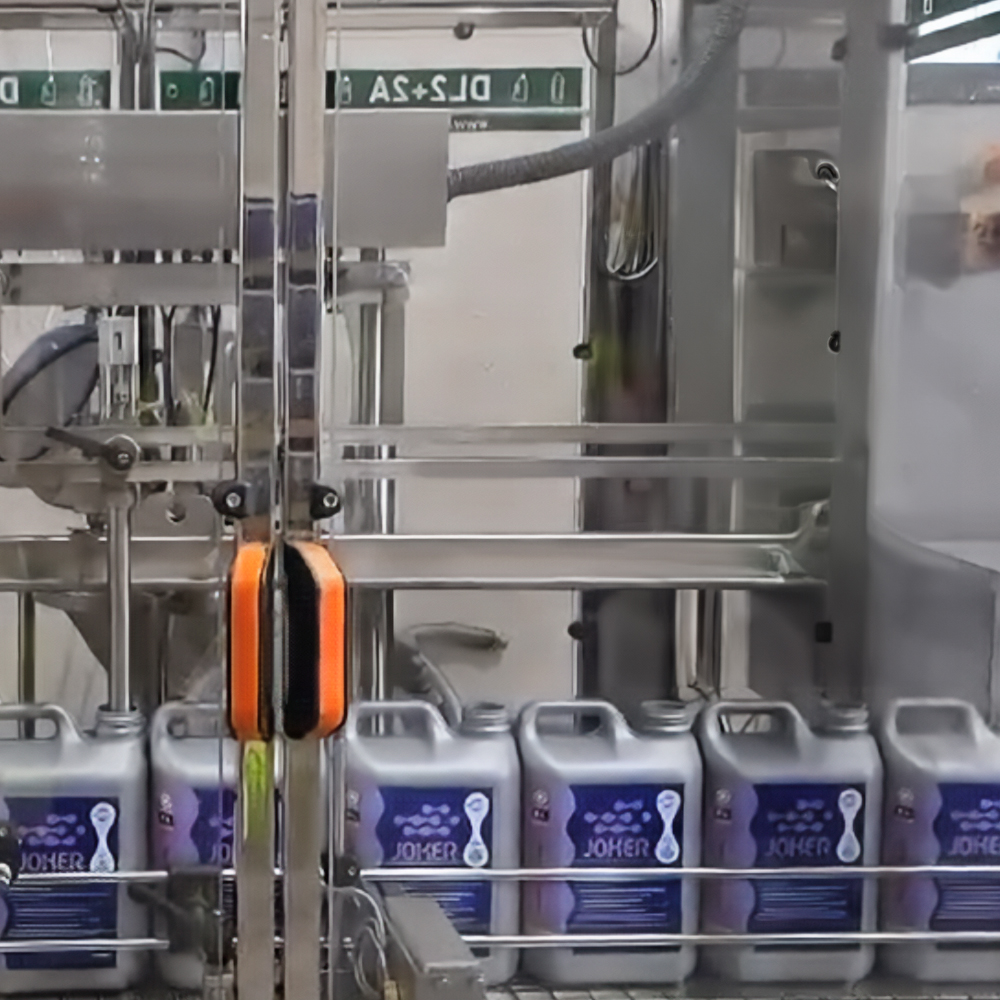Phosphorus (P) is one of the most important macronutrients in agricultural production. Its functions cannot be performed by any other nutrient, so make sure you use it if you want to get the most out of your crop.
BENEFITS OF PHOSPHORUS
As we have already told you many times before, crop soils need a number of nutrients, minerals and elements to perform as expected.
A brief summary: the basic nutrients for crops are nitrogen, phosphorus, sulphur, calcium, iron, magnesium and potassium. Today we are going to talk about phosphorus.
It is very important that you pay attention to the quality of the fertiliser you use, but also to the amount of nutrients it contains.
Later, we’ll tell you about the main consequences of improper use of phosphorus: both underuse and overuse.
But first, let’s dig a little deeper into the importance of phosphorus.
WHAT IS PHOSPHORUS AND WHAT ROLE DOES IT PLAY IN CROPS?
As we have said, phosphorus is an essential nutrient for plant growth. It is a primary nutrient, which is why it is often deficient in agricultural production and crops require it in fairly high amounts.
Phosphorus is found in most soils, but not all the phosphorus in these soils is available for plant use.
The main reason for this is that phosphorus is a highly reactive element in the soil, and quickly changes into more complex forms that make it difficult for plants to absorb. Therefore, a phosphorus-rich fertiliser needs to be applied on most occasions.
An adequate supply of phosphorus in our crop will ensure:
- Stems with increased resistance to breakage.
- Stimulated root development.
- Increased flower and seed production.
- Earlier and more uniform crop production.
- Increased resistance to diseases and pests.
As you can see, it is highly recommended to keep this element in mind in order to obtain optimum yields in your crops.
And if this hasn’t convinced you, we will now take a look at some of the consequences of phosphorus deficiency in crops.
LACK OF OR DEFICIENT PHOSPHORUS IN CROPS
Some of the symptoms that plants display when they do not have enough phosphorus are the following:
- Plants do not develop roots
- .They show slow and insufficient growth, delaying ripening and remaining green.
- Their leaves are sparse.
- Leafroll.
- The growth of the aerial part is more affected.
- Their flowers grow slowly
- Defective fertilisation and delayed fruit ripening
- Dark blue-green, purple and brownish leaves from the tip onwards (often also on the stems). In extreme situations, necrosis, or death of the tissue, occurs. The plant does not recover from this state.
- Fruits may be deformed, kernels poorly filled.
WHAT ABOUT EXCESS PHOSPHORUS?
Excess Phosphorus largely interferes with the plant’s ability to absorb other nutrients such as iron, calcium and zinc.
It is quite common that some farmers, in order to avoid phosphorus deficiencies, fertilise in excess without taking into account that their soil may have the available Phosphorus that their crops need. We never tire of repeating that you should always count on professional help to take into account all the possible variables that may intervene in the production of your crop.
WHICH PHOSPHATE FERTILISER SHOULD I CHOOSE?
First of all, you have to take into account all the variables mentioned above: the type of soil, its texture, its drainage, the dosage and the application technique.
To make your task easier, here is our list of phosphate fertilisers.
These are our superphosphates and binary phosphates, and their characteristics:
Diammonium Phosphate (DAP)
- DAP 18-46-0
- 18%N+46%PO2O5
- EC FERTILISER
- 18-46-0 NP Fertiliser
CHEMICAL COMPOSITION
- 18.0% Total nitrogen (N)
- 18.0% Ammoniacal nitrogen (N)
- 46.0% Phosphorus pentoxide (P2O5), soluble in neutral ammonium citrate and in water
- 41.5% Phosphorus pentoxide (P2O5) soluble in water.
PHYSICAL PROPERTIES
- Bulk density: 0.95 t/m3
- Particle size analysis: 90% between 2.0 mm and 5.0 mm
- pH: 5.0 (dissolution in water 1:10, 20ºC)
- Content in H2O: Max. 1.8%
MAP Monoammonium Phosphate 11-52-0
- EC FERTILISER
- 11-52 NP Fertiliser
CHEMICAL COMPOSITION
- 11% total nitrogen (N):
- 11% Nitrogen (N) in ammoniacal form
- 52% Phosphorus pentoxide (P2O5) soluble in neutral ammonium citrate and water
- 50% Phosphorus pentoxide (P2O5) soluble in water
PHYSICAL CHARACTERISTICS
- Granulometry: 95% between 1.0 mm and 4.00 mm
12-27-0 NP
- NP 12-27-0 (24)(2) EC FERTILISER
CHEMICAL COMPOSITION
12% TOTAL NITROGEN
- 12% AMMONIACAL NITROGEN
PHOSPHORUS PENTOXIDE P2O5 TOTAL 27%
- PHOSPHORUS PENTOXIDE P2O5 SOLUBLE IN WATER 20%
- PHOSPHORUS PENTOXIDE P2O5 SOLUBLE IN NEUTRAL AMMONIUM CITRATE AND WATER 27%
SULPHUR TRIOXIDE SO3 24%
- SULPHUR TRIOXIDE SO3 SOLUBLE IN WATER 20%
MAGNESIUM OXIDE MgO TOTAL 2%
- MAGNESIUM OXIDE MgO SOLUBLE IN WATER 2%
Lime Superphosphate 18%
Simple superphosphate 18% P2O5, GRANULATED
- EC FERTILISER
CHEMICAL COMPOSITION
Phosphorus pentoxide (P2O5) soluble in ammonium citrate and water 18%
- Phosphorus pentoxide (P2O5) soluble in water 17%
Superphosphate 45%
- TSP GRANULATED 45%
- Phosphate fertiliser, Triple Superphosphate P 45%
- EC FERTILISER
CHEMICAL COMPOSITION
Phosphorus pentoxide (P2O5) total 45%
- Phosphorus pentoxide (P2O5) soluble in neutral ammonium citrate and in water 45%
- Phosphorus pentoxide P2O5) soluble in water 42%
Remember that DFGRUPO can recommend the products that best meet the needs of your crops and answer any questions you may have.
Please get in touch, and we will be happy to discuss it with you!

